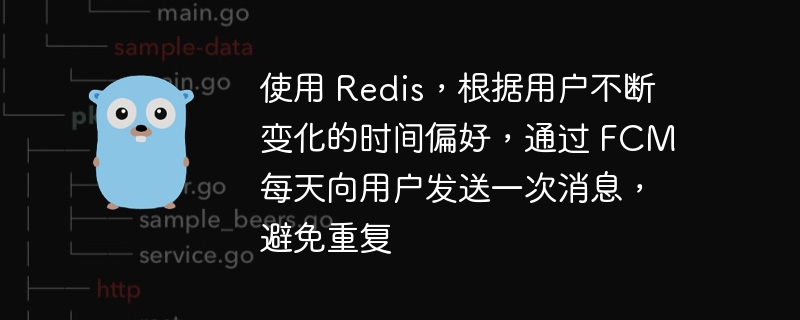

I have many posts and the upvote and downvote count for each post is stored in my Postgres database. I'm running a Gin Golang server, Flutter mobile app, and sending notifications to users using FCM (Firebase Cloud Messaging).
First of all, this problem is easy to solve. I just don't know how to effectively solve it.
I would like to send the top voted posts to each user approximately once a day. However, I want to send notifications to users based on the time they are most active in the app (not all at once, i.e. not just 12am every day).
So, let's say I'm tracking an entry for each user in a table called active_times, which entry has a time value that I base on their relationship with a mobile app like time# in Postgres ##) Fields updated during interaction. I am constantly updating based on user activity.
time field within that ~2 hour window. I then send pinned post notifications to these users. I then save a set of hashes in the Redis cache mapping user_ids to time_notification_recieveds and set the auto-expiration to about 12 hours. For each subsequent query, I first check the if user_id in Redis, don't send to that user, otherwise, send and add the id to Redis.
time), they will be logged in up to 12 Notifications are received later in the hour, but are usually sent approximately every 24 hours (daily) since their activity window does not change much. For example this is as opposed to their time window being 2pm and then after I send them a notification it updates to 4pm and they get hit again within 2 hours.
Also, is Redis used to do this kind of thing? Is there a completely different approach I can take to do this?
Thanks!
I would have a separate column (for example) in the user table that contains "Next Notification Time" for scheduling notifications. I guess you don't want to be in a situation where a user is using the system and then immediately gets a notification, right?
To determine when notifications are sent, you can use a table with a mini activity histogram; something like that
The above is the detailed content of Use Redis to send messages to users once a day via FCM based on their changing time preferences to avoid duplication. For more information, please follow other related articles on the PHP Chinese website!
 Comparative analysis of win10 home version and professional version
Comparative analysis of win10 home version and professional version
 What do full-width characters mean?
What do full-width characters mean?
 Linux compression zip command usage
Linux compression zip command usage
 How to read a column in excel in python
How to read a column in excel in python
 Clean up junk in win10
Clean up junk in win10
 Flutter framework advantages and disadvantages
Flutter framework advantages and disadvantages
 How to use the mid function
How to use the mid function
 How to restore IE browser to automatically jump to EDGE
How to restore IE browser to automatically jump to EDGE




